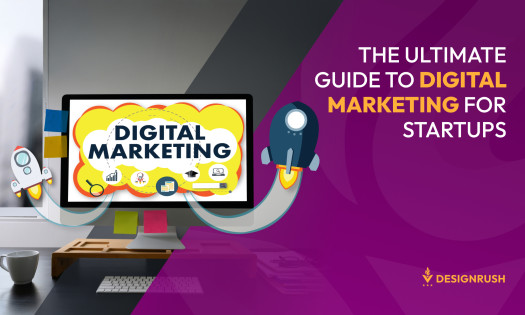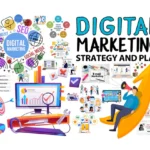In today’s digital-first world, digital marketing for startups is essential for gaining visibility, attracting customers, and building a lasting brand. Startups often work with tight budgets and limited resources, making it critical to focus on affordable yet impactful strategies that deliver real results.
One of the most powerful tools in digital marketing for startups is the effective use of social markketing platforms. Channels like Instagram, Facebook, LinkedIn, and X (formerly Twitter) offer startups the opportunity to engage directly with their audience, build community, and promote their products or services in a highly targeted way. With the right content strategy and consistency, social media can significantly boost brand awareness and drive traffic to your website or online store.
But social media is just one piece of the puzzle. This guide explores a variety of proven techniques—from SEO and content marketing to email campaigns and paid advertising—tailored specifically for startups. You’ll also learn how to track performance using free tools like Google Analytics and Google Search Console, helping you make data-driven decisions that maximize ROI.
By leveraging cost-effective tools, building a solid presence on the right platforms, and focusing on meaningful engagement, startups can compete with larger brands and grow sustainably. Whether you’re launching your first campaign or refining your strategy, this guide will help you navigate the digital landscape with confidence and clarity.
What is Digital Marketing for Startups?
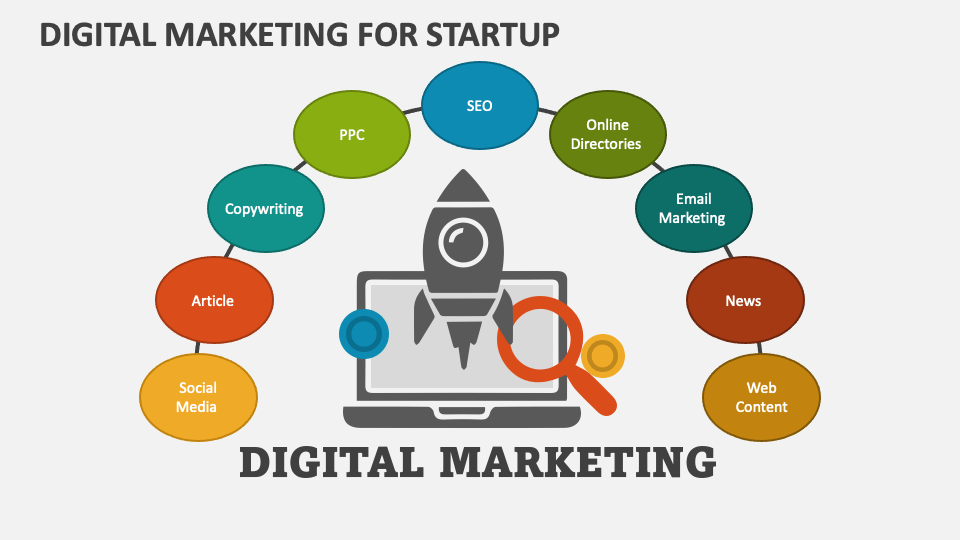
Digital marketing for startups involves leveraging online tools, platforms, and strategies to promote a new business’s products or services in a cost-effective way. It includes a wide array of tactics such as search engine optimization (SEO), content creation, social media marketing, email outreach, and paid advertising—all tailored to reach and engage a specific target audience.
Unlike established brands with larger budgets and widespread recognition, startups often face challenges like limited visibility and tight resources. That’s where digital marketing for startups becomes a powerful equalizer. It empowers small businesses to build brand awareness, establish credibility, and generate leads through smart, focused campaigns that deliver measurable results.
From using SEO to improve organic search rankings to running low-cost social media ads that drive engagement, startups can grow efficiently by choosing the right mix of digital channels. Platforms like Instagram, LinkedIn, and Facebook allow for highly targeted outreach, helping startups connect directly with potential customers in real time.
Ultimately, digital marketing for startups is about making the most of available resources. By staying creative, agile, and data-driven, startups can compete with larger players, adapt quickly to market trends, and scale their efforts over time—without overspending.
.
Why Digital Marketing is Essential for Startups
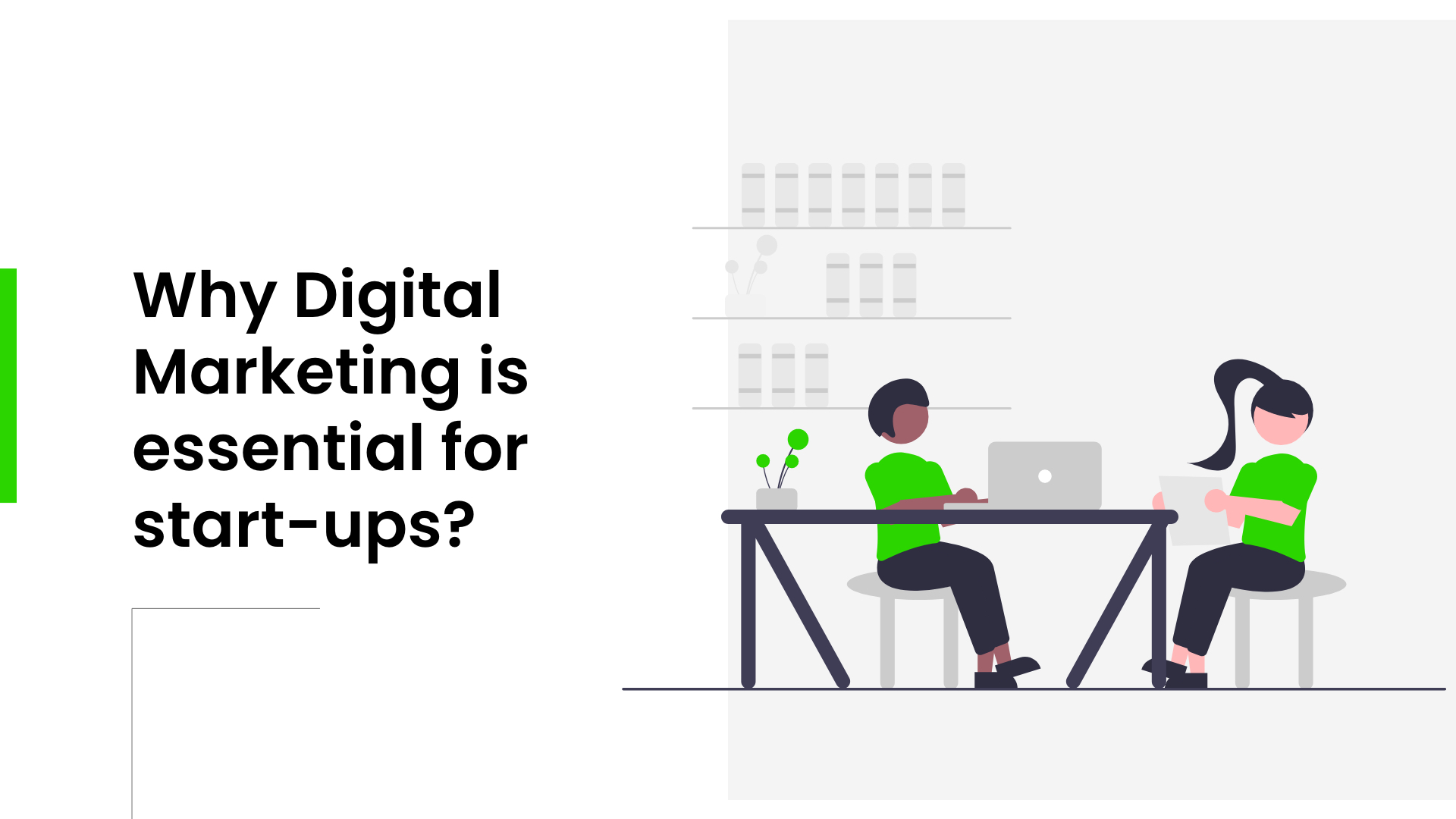
Startups need digital marketing for startups to establish a strong online presence, attract customers, and scale efficiently. Here are the key reasons why digital marketing is non-negotiable for startups:
-
Cost-Effectiveness: Digital marketing channels like SEO, social media, and email marketing are often more affordable than traditional advertising, making them ideal for startups with limited budgets.
-
Targeted Reach: Digital marketing allows startups to target specific demographics, interests, and behaviors, ensuring their message reaches the right audience.
-
Measurable Results: Tools like Google Analytics and social media insights provide real-time data, enabling startups to track performance and optimize campaigns.
-
Brand Building: A strong digital presence helps startups establish credibility and trust with potential customers.
- Scalability: Digital marketing strategies can be scaled as the startup grows, allowing for flexibility and adaptability.
Core Components of Digital Marketing for Startups
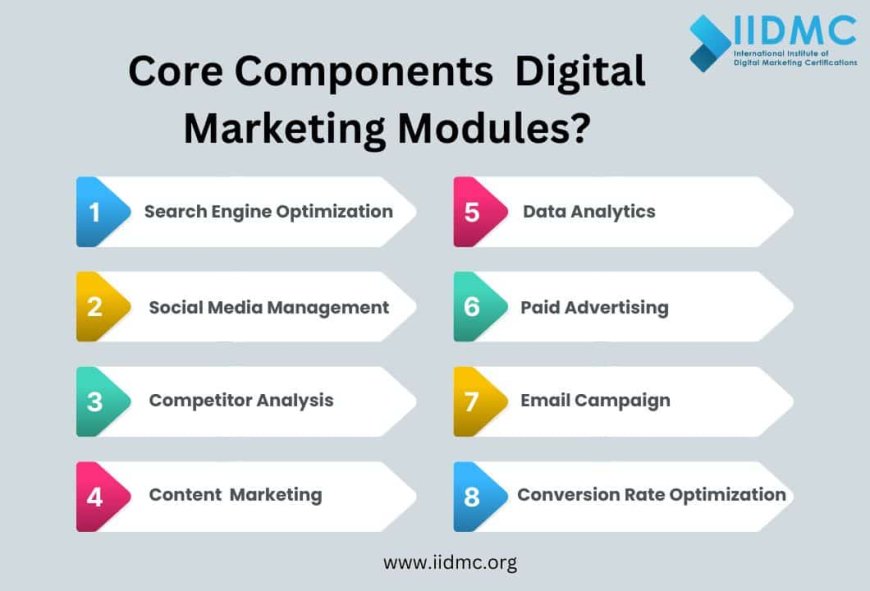
To thrive in digital marketing for startups, it’s crucial to understand and apply these key components.:
1. Search Engine Optimization (SEO)

SEO involves optimizing your website to achieve higher rankings on search engine results pages (SERPs) for relevant keywords like digital marketing for startups. Higher rankings drive organic traffic, which is crucial for startups looking to attract customers without heavy ad spend.
Key SEO Strategies for Startups
-
Keyword Research: Use tools like Google Keyword Planner or SEMrush to identify high-intent keywords like “digital marketing for startups” that your target audience is searching for.
-
On-Page SEO: Optimize title tags, meta descriptions, headers, and content with your focus keyword. For example, include “digital marketing for startups” naturally in your blog posts and landing pages.
-
Technical SEO: Focuses on making your website mobile-responsive, optimizing load times, and ensuring it’s secured with HTTPS.
-
Content Creation: Publish high-quality, informative content that addresses your audience’s pain points, such as blog posts, guides, and case studies.
-
Link Building: The process of earning hyperlinks from authoritative websites, which signals trust to search engines and helps improve your site’s ranking.
Pro Tip
Start with local SEO if your startup targets a specific geographic area. Secure your Google Business Profile and optimize it to dominate local search results.
2. Content Marketing

Content marketing is a key component of digital marketing for startups. By creating valuable, relevant content—such as blogs, videos, and infographics—you can attract your audience, build trust, and drive meaningful engagement that leads to growth and conversions.
How to Create a Content Marketing Strategy
-
Understand Your Audience: Develop buyer personas to understand your target customers’ needs, preferences, and pain points.
-
Create High-Value Content: Write blogs like “The Ultimate Guide to Digital Marketing for Startups” that provide actionable insights. Add your main keyword in a way that feels natural to help boost your SEO.
-
Diversify Content Types: Experiment with videos, podcasts, and social media posts to reach different audience segments.
-
Distribute Content: Share your content on social media, email newsletters, and platforms like Medium or LinkedIn.
-
Measure Performance: Analyzing performance metrics—such as traffic, engagement time, and conversion data—can help you fine-tune your content strategy for better results.
Example Content Ideas
-
“10 Cost-Effective Digital Marketing Strategies for Startups”
-
“How to Use Social Media for Startup Growth”
-
“Understanding SEO’s Impact on Digital Marketing for Startups”
3. Social Media Marketing

Social media platforms are powerful tools for startups to connect with audiences, build brand loyalty, and drive traffic. Platforms like Instagram, LinkedIn, Twitter (X), and TikTok offer unique opportunities to showcase your brand’s personality.
Social Media Tips for Startups
-
Choose the Right Platforms: Based on audience behavior. LinkedIn is ideal for B2B startups, while B2C brands typically gain more traction through Instagram and TikTok content strategies.
-
-
Engage with Followers: Respond to comments, messages, and mentions to build relationships.
-
Use Paid Ads: Run targeted social media ads with small budgets to test what resonates with your audience.
-
Leverage User-Generated Content: Invite your customers to share their experiences with your brand and proudly showcase their posts on your channels.
Pro Tip
Leverage social media analytics to monitor engagement and refine your strategy. For instance, if a post on digital marketing for startups gains traction, produce more content on that topic.
4. Email Marketing

Email marketing is a powerful, cost-effective tool for startups to engage, nurture, and convert leads. For instance, if a post on digital marketing for startups gains traction, produce more content on that topic.
How to Build an Email Marketing Strategy
-
Build a Subscriber List: Offer lead magnets like free eBooks or webinars to collect email addresses.
-
Segment Your Audience: Divide your subscriber list by interests, actions, or demographics to create tailored and effective campaigns.
-
Craft Compelling Emails: Write clear, engaging subject lines and include calls-to-action (CTAs) to drive clicks.
-
Automate Campaigns: Use tools like Mailchimp or HubSpot to set up automated welcome emails, drip campaigns, and re-engagement sequences.
-
Analyze Results: Track open rates, click-throughs, and conversions to refine and improve your upcoming email campaigns.
Example Email Campaign
Send a series of emails titled “Mastering Digital Marketing for Startups” that guide subscribers through key strategies, with each email linking to a blog post or resource on your website.
5. Paid Advertising

Paid advertising—such as Google Ads and social media ads—offers startups a fast track to increased visibility and traffic. While it requires an investment, it’s a powerful way to test campaigns, reach specific audiences, and drive measurable results.
Types of Paid Ads for Startups
- Google Ads (PPC): Launch pay-per-click campaigns targeting keywords like “digital marketing for startups” to secure top positions in search results and capture high-intent traffic.
-
Social Media Ads: Use Facebook, Instagram, LinkedIn, or other platforms to run highly targeted campaigns based on user interests, behavior, location, and demographics.
-
Retargeting Ads: Re-engage users who visited your site but didn’t convert, reminding them of your offer and encouraging them to return and complete the desired action.
-
Display Ads: Place visual banner ads on niche or industry-relevant websites to boost brand awareness and visibility across the web.
Budgeting Tips
Begin with a modest budget to experiment with various ad formats, target audiences, and creatives. Increase spending on campaigns that generate strong returns and proven results.
6. Analytics and Data Tracking
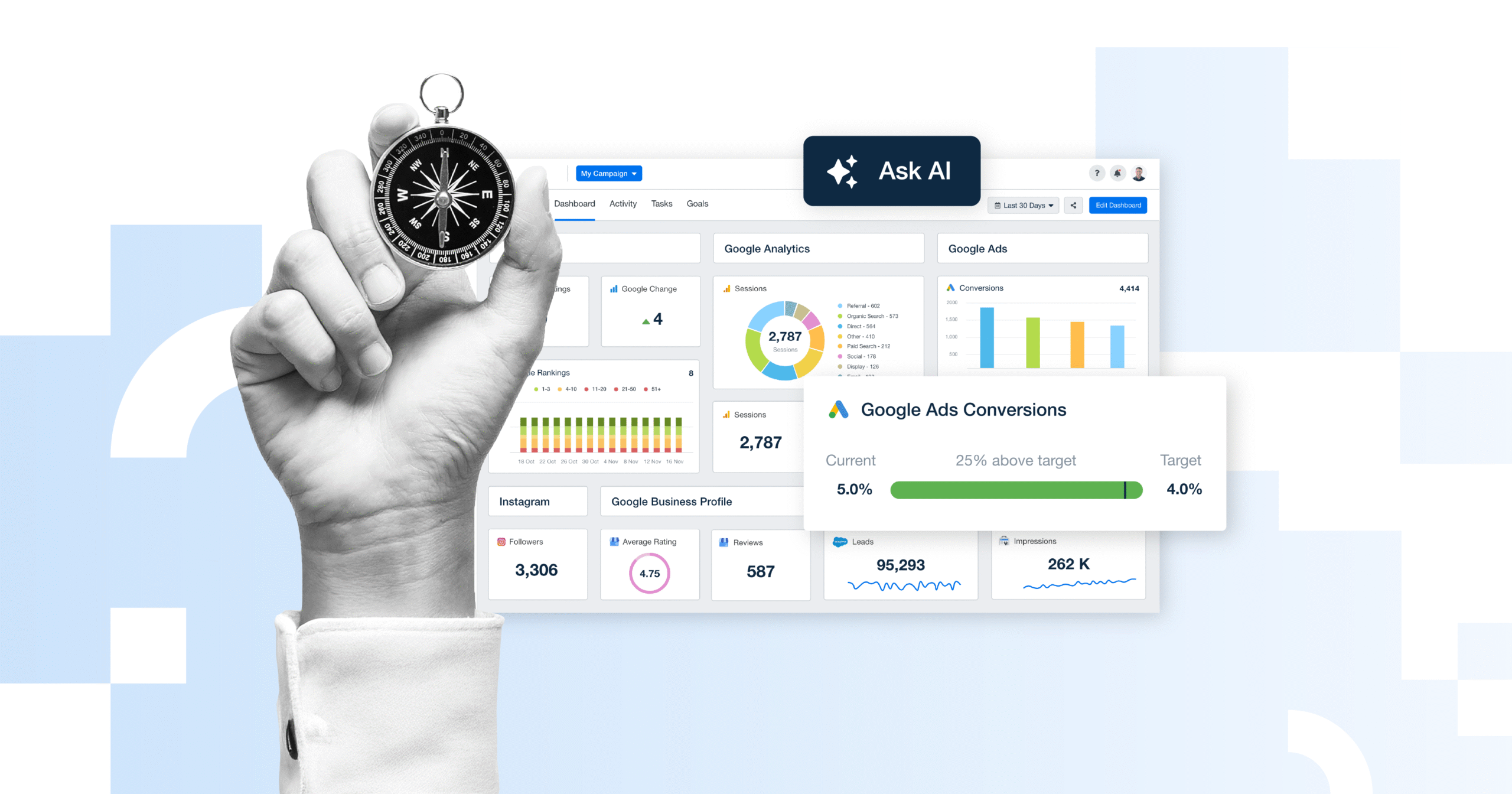
Data is the backbone of effective digital marketing for startups, guiding smarter decisions and optimized strategies. By consistently tracking and analyzing key performance indicators, startups can refine their strategies, improve results, and allocate their budgets more efficiently.
Key Tools for Analytics
- Google Analytics: Monitor website traffic, user behavior, session duration, bounce rates, and conversion paths.
-
Google Search Console: Analyze search performance, keyword rankings, and uncover technical SEO issues that may impact visibility.
-
Social Media Insights: Use built-in analytics from platforms like Facebook, Instagram, and LinkedIn to track engagement, reach, and audience growth.
- CRM Tools: Platforms such as HubSpot or Salesforce help manage leads, track customer interactions, and measure sales pipeline performance.
Metrics to Monitor
- Website Traffic: Understand how many people visit your site, where they come from, and which pages they engage with most.
-
Conversion Rate: Measure the percentage of visitors who complete desired actions like signing up for a newsletter or making a purchase.
-
Cost Per Acquisition (CPA): Calculate the average cost of acquiring a new customer through your campaigns.
-
Return on Ad Spend (ROAS): Evaluate the profitability of your advertising by comparing revenue earned to the amount spent on ads.
Building a Digital Marketing Strategy for Startups
Creating a cohesive digital marketing for startups strategy involves aligning your efforts with your business goals. Follow these steps to build an effective plan:
Step 1: Define Your Goals

Define goals that are specific, measurable, achievable, relevant, and time-bound (SMART) to ensure clear direction and accountability. Examples include:
-
Increase website traffic by 50% in six months.
-
Generate 100 new leads per month through email marketing.
-
Achieve a 10% conversion rate on social media ads.
Step 2: Identify Your Target Audience

Develop detailed buyer personas that outline your ideal customers’ demographics, interests, challenges, and online behavior. This helps make your digital marketing for startups more focused, strategic, and results-driven.
Step 3: Choose the Right Channels

Focus on 2-3 channels that align with your audience and goals. For example, a B2B startup might prioritize LinkedIn and email marketing, while a B2C startup might focus on Instagram and content marketing.
Step 4: Create a Content Plan
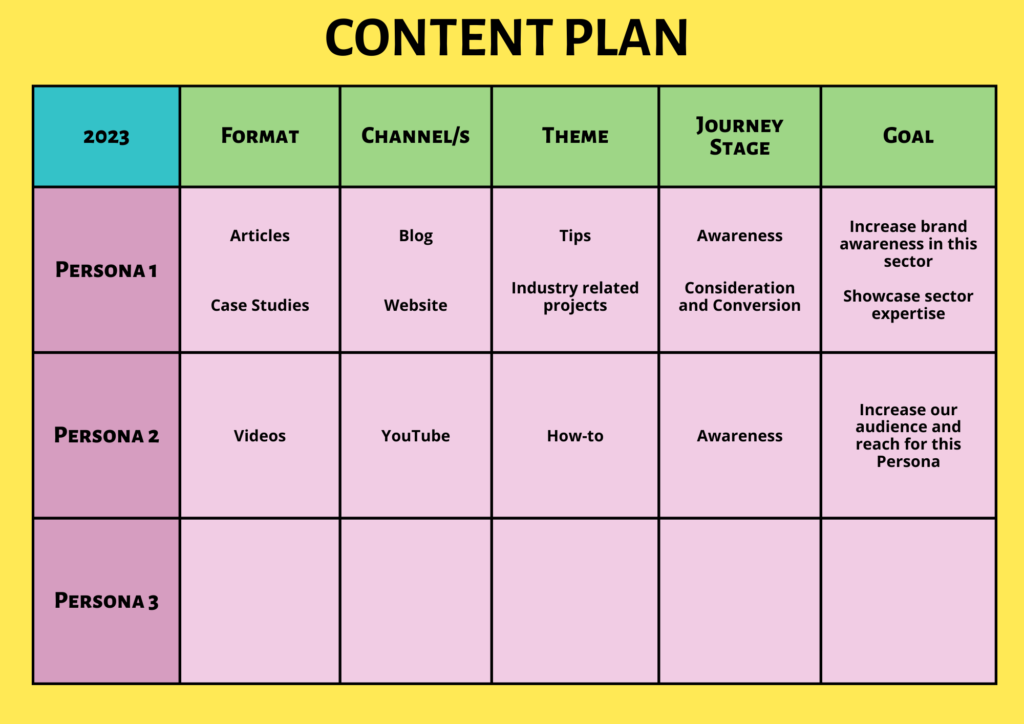
Plan your content around your focus keyword, “digital marketing for startups,” and related topics. Develop a mix of blog posts, social media content, and lead magnets to attract and engage your audience.
Step 5: Set a Budget

Allocate your budget based on your goals and resources. Prioritize low-cost channels like SEO and content marketing in the early stages, then experiment with paid ads as you grow.
Step 6: Measure and Optimize
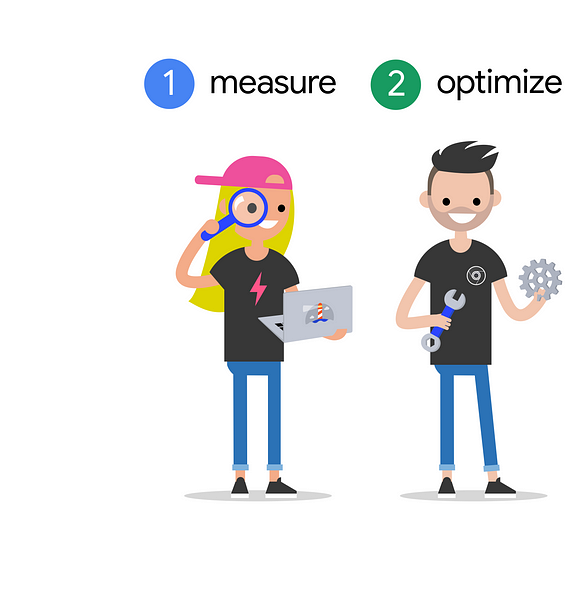
Regularly review analytics to identify what’s working and what isn’t. Refine your strategy using data insights to achieve the highest possible return on investment (ROI).
Common Challenges in Digital Marketing for Startups

Startups often face obstacles when implementing digital marketing for startups. Here’s how to overcome them:
1. Limited Budget
Solution: Focus on organic strategies like SEO and content marketing. Utilize free tools such as Google Analytics and Canva to reduce expenses and maximize your marketing efficiency.
2. Lack of Expertise
Solution: Invest in online courses or hire a freelance digital marketer to guide your efforts. Platforms such as Upwork and Fiverr offer access to skilled professionals at budget-friendly rates.
3. Time Constraints
Solution: Automate repetitive tasks, such as social media scheduling or email campaigns, using tools like Buffer or Mailchimp.
4. Competition
Solution: Differentiate your brand by focusing on a niche audience or unique value proposition. Create content that addresses specific pain points, like “digital marketing for startups on a budget.”
Tools to Boost Digital Marketing for Startups
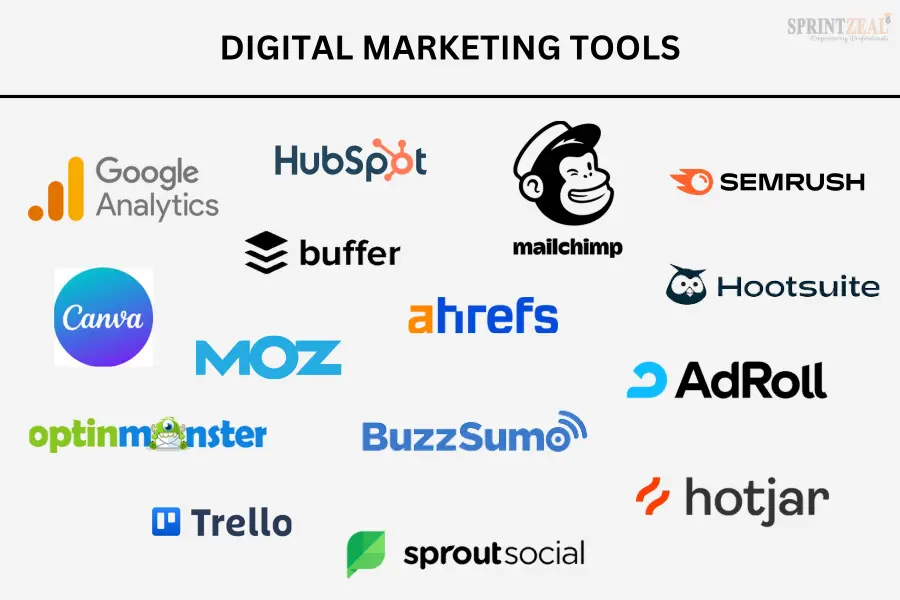
The right tools can streamline your digital marketing for startups efforts. Here are some affordable options:
-
SEO: Use tools like SEMrush, Ahrefs, or Ubersuggest to conduct keyword research and analyze your competitors.
-
Content Creation: Canva for graphics, Grammarly for writing, and WordPress for blogging.
-
Social Media: Hootsuite or Buffer for scheduling and analytics.
-
Email Marketing: Mailchimp or Sendinblue for affordable email campaigns.
-
Analytics: Leverage Google Analytics and Google Search Console to monitor and evaluate your website’s performance.
Case Studies: Successful Digital Marketing for Startups

Case Study 1: Dollar Shave Club
Dollar Shave Club used digital marketing for startups to disrupt the razor industry. Their viral YouTube video, combined with a strong social media presence and email marketing, helped them acquire millions of customers and eventually sell for $1 billion.
Case Study 2: Canva
Canva leveraged content marketing and SEO to grow its user base. By creating valuable design tutorials and optimizing for keywords like “free graphic design,” Canva attracted millions of users and became a leading design platform.
Future Trends in Digital Marketing for Startups
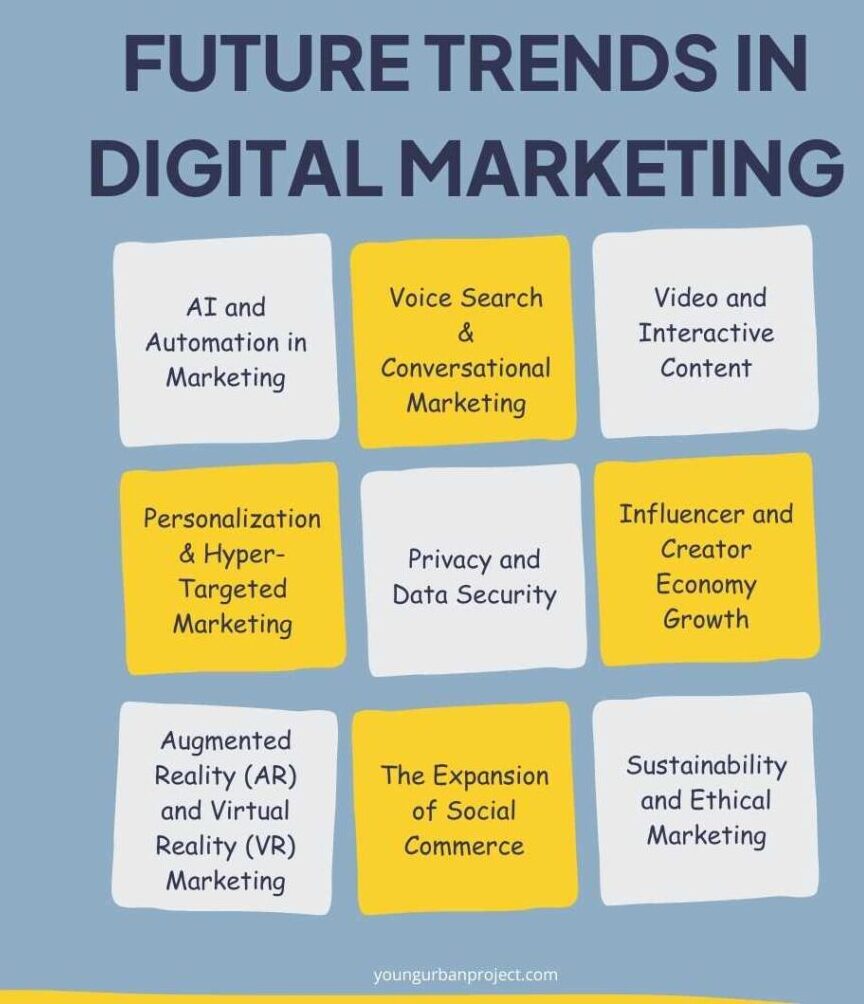
Stay ahead of the curve by embracing these emerging trends in digital marketing for startups:
-
AI-Powered Marketing: Use AI tools like chatbots and predictive analytics to personalize customer experiences.
-
Video Content: Invest in short-form videos for platforms like TikTok and Instagram Reels to capture attention.
-
Voice Search Optimization: Optimize content for voice search queries, as devices like Alexa and Google Assistant gain popularity.
-
Sustainability and Authenticity: Highlight your startup’s values and mission to connect with socially conscious consumers.
Conclusion
In today’s fast-paced online landscape, digital marketing for startups is one of the most effective ways to gain visibility, attract new customers, and grow a brand without breaking the bank. Startups often face unique challenges such as limited budgets, low brand recognition, and small teams—but with the right strategies, digital marketing can level the playing field.
A well-rounded digital marketing for startups strategy should include core components like search engine optimization (SEO) to improve visibility in search results, content marketing to educate and engage your audience, and and leverage social media platforms to foster community engagement and encourage meaningful interactions. Platforms like Instagram, LinkedIn, and Facebook offer affordable ways to connect with your target audience based on their interests, demographics, and behaviors.
Email marketing is another valuable tool that helps nurture leads and build long-term relationships, while paid advertising through Google Ads or social media can generate quick, targeted results when used strategically. The key is to start small—test different channels, creatives, and messaging to see what resonates.
Equally important is tracking performance. Use tools like Google Analytics, Search Console, and social media insights to measure traffic, conversions, and engagement. These data points help refine your campaigns over time, ensuring better return on investment.
By combining creativity with data, staying agile, and continuously optimizing, startups can build a strong digital presence and achieve sustainable success—even in a crowded marketplace.


